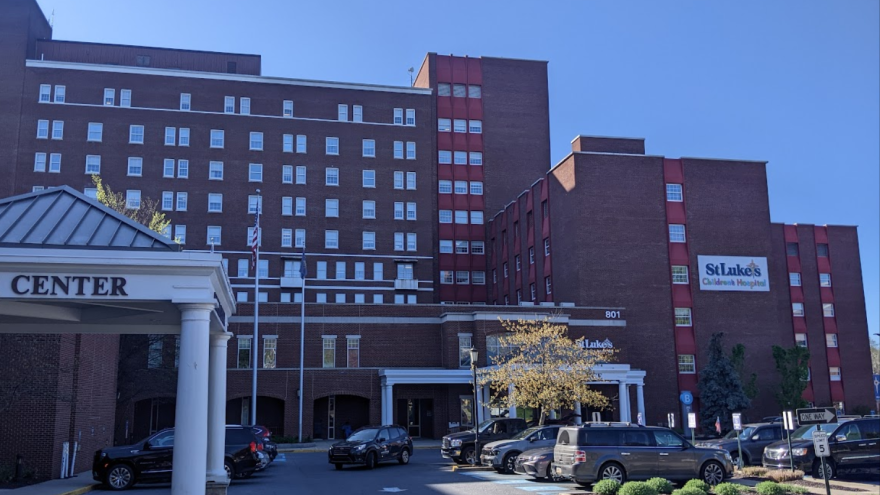ALLENTOWN, Pa. — If you can't leave the hospital, what is the limit to the treatment you can request?
Guy Ferraiolo, 71, of Whitehall Township, a desperate cancer patient, asked St. Luke's University Hospital Network to administer an experimental set of off-label drugs to treat his stage IV metastatic stomach cancer.
The hospital network staff refused, saying the requested drugs, including antiparasitic drugs ivermectin and mebendazole, were not approved for use and did not match their care standards for the disease.
So Ferraiolo sought Lehigh County Court to make them administer the treatment — or at least let someone else do it.
Siding with St. Luke's, Judge Thomas A. Capehart wrote that patients do not have a right to treatment that falls outside a healthcare provider's standard of care, even in the case of a terminal condition.Lehigh County Court ruling
The case did not center on whether the unproven regimen works, but rather that the out-of-options patient has the legal right to pursue an alternative treatment in the hospital by an outside physician when he is unable to be moved and no other options are perceived as available to him.
No monetary or compensatory damages were sought.
The court late Monday denied the attempt, according to a judge's written decision shared by the plaintiff's attorney.
Siding with St. Luke's, Judge Thomas A. Capehart wrote that patients do not have a right to treatment that falls outside a healthcare provider's standard of care, even in the case of a terminal condition.
The court agreed with the hospital system, citing a State Superior Court decision in 2022 of Shoemaker vs. UPMC Pinnacle Hospital.
In that case, the court ruled that a critically ill COVID-19 patient who sought an injunction to administer ivermectin against a hospital's will did not have the legal right to do so because it was not aligned with that hospital's policy or standard of care.
"Judges are not doctors and cannot practice medicine from the bench," Superior Court Judge Joseph Seletyn said in that case, quoting the appellate court judgment.
"The judiciary is called upon to serve in black robes, not white coats. And it must be vigilant to stay in its lane and remember its role."
The local case
Staff at St. Luke's Hospital in Fountain Hill recommended palliative, or comfort, care to Ferraiolo following unsuccessful chemotherapy that resulted in kidney complications and a bedridden condition, according to the suit.
He was diagnosed with the cancer in January and underwent chemotherapy in late February, according to court documents.
But Ferraiolo refused that palliative care. Arguing he was unable to be transferred because of his condition, he instead went to court to try to get the opportunity for more hope via an unproven treatment plan shared with him by an outside health care proxy.
"At this point, there is nothing more the Defendants can do, or will do, for my husband," Moy says in an affidavit attached to the complaint. However, I cannot give up on him, even if the Defendants have.Denise Moy, in legal filing
A legal complaint filed on April 11 by Ferraiolo's legal team asked Lehigh County Court to make St. Luke's comply with the requests for an investigative regimen of drugs, including antiparasitic drugs ivermectin and mebendazole.
The drugs have been subject to some research for potential use in cancer treatment.
But in court, St. Luke's argued that since the drugs are not approved by the U.S. Food and Drug Administration for such use, not advocated for by the National Comprehensive Cancer Network, and not within St. Luke's standard regimen of care, physicians should not have to administer them.
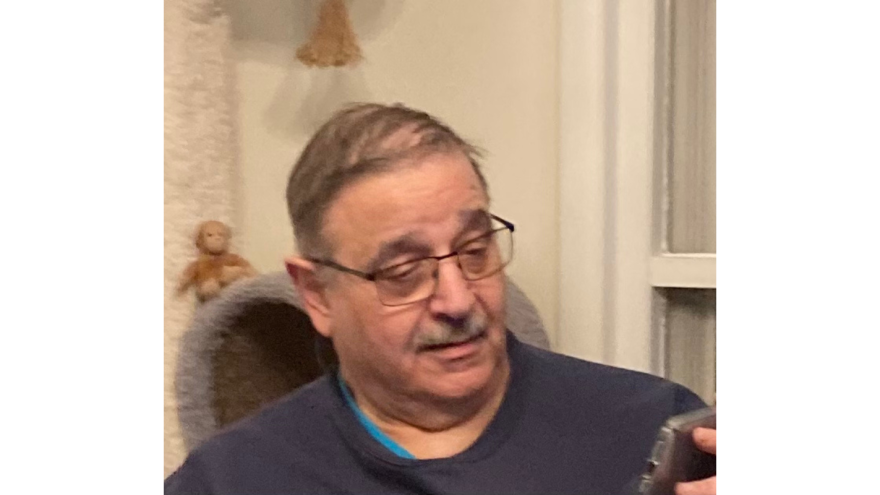
The drug regimen has been pushed by the Front Line COVID-19 Critical Care Alliance, or FLCCC, a group considered controversial for its outspoken advocacy surrounding COVID-19 treatments with ivermectin not supported by public health officials in the National Institutes of Health and FDA.
Dr. Pierre Kory, co-founder of the FLCCC, an outside physician not licensed in Pennsylvania, would have administered the treatment if approved by the court.
Ferraiolo's wife, Denise Moy, said he wanted to "try anything he could."
"At this point, there is nothing more the Defendants can do, or will do, for my husband," Moy says in an affidavit attached to the complaint.
"However, I cannot give up on him, even if the Defendants have.
"There is no reason why the Defendants cannot approve or authorize other forms of treatment so long as the benefits outweigh the risks."
The hearing
About two dozen community members, friends and family came to Friday's court hearing to support Ferraiolo, who appeared in court via Zoom from his hospital bed.
Ferraiolo and his legal team argued that because of his immobility, his "constitutional right to life" and the unwillingness of St. Luke's physicians to administer the drug treatment, the court should step in to let Kory administer the regimen on St. Luke's property.
But lawyers with St. Luke's said the treatment plan was below its standard of care, was not requested through required pathways, and that it would not offer privileges to Kory to practice within its building.
A brief in opposition argued there is no legal precedent to force a hospital to break with its policy or force it to issue credentials or privileges to an outside physician.
That was true even given Ferraiolo's willingness to sign a release relieving the hospital system of liability as a result of the treatment, the brief said.
"Emotionally, we understand why an individual would seek alternative, unproven therapies in this type of situation."St. Luke's Senior Vice President of Medical and Academic Affairs Jeffrey Jahre
"Emotionally, we understand why an individual would seek alternative, unproven therapies in this type of situation," St. Luke's Senior Vice President of Medical and Academic Affairs Dr. Jeffrey Jahre said in a statement.
"As a patient-centered health care organization, we sympathize with the patient and family. However, St. Luke’s has a robust clinical trials department designed to evaluate and handle alternative, novel therapies for patients.
"This particular matter involves the use of a totally unproven therapy requiring St. Luke’s physicians and caregivers to knowingly deliver care that is below an acceptable standard.
"Therefore, after careful consideration of the science and ethics by pertinent medical specialists, St. Luke’s has reached the difficult decision that it should not utilize the requested experimental therapy on a patient in our hospital."
Desperate for further care
Moy said Ferraiolo's health care proxy, Dr. Anthony Messina, discovered the FLCCC observational cancer study, seeing it as a last-ditch effort that would not cause any additional harm with "absolutely nothing to lose."
“He is getting worse every single day,” attorney Ralph Lorigo said in court at Friday's hearing. “He is a prisoner in that hospital.”
During Friday's proceedings, Lorigo leveraged his argument on Pennsylvania's 2017 Right to Try Act.
As written, the law intends to let terminally ill patients use investigational drugs and medical devices, but it does not encompass individuals being treated as an inpatient at a hospital.
Lorigo argued, however, that the intent of the law supported his client, and a constitutional right to life requires action be taken.
“The whole point of the right to try act is — this man is dying and we don’t have time for all of that,” Lorigo said.
He said St. Luke's can't use its standard of care because of the patient's condition, and argued that greater injury would come from the refusal to use the treatment, even if its success is unlikely.
“He’s a fighter," Lorigo said of Ferraiolo. "He believes he has the legal right to try to save his life.”
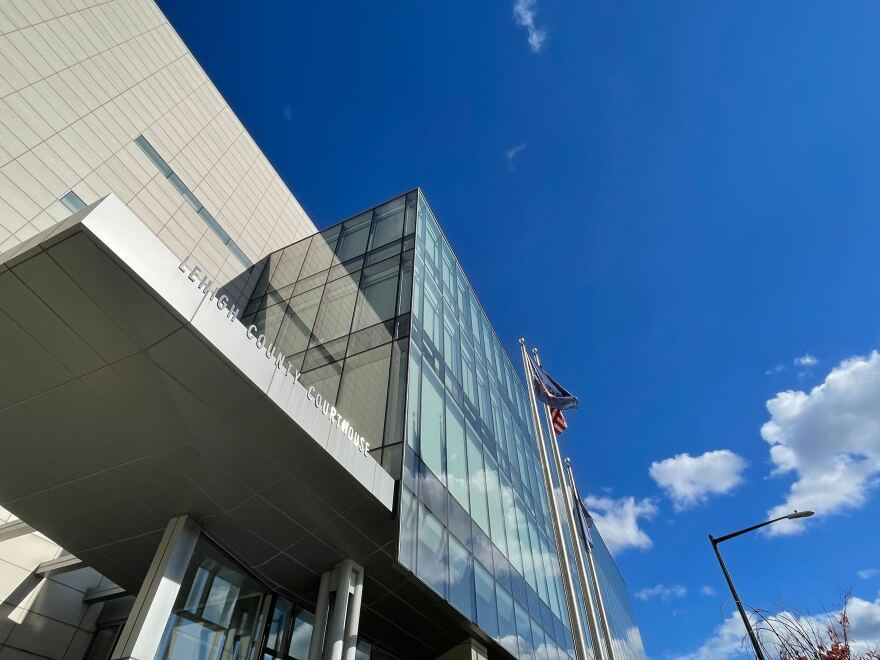
The legal team also said that some physicians at the hearing supported doing the treatment, seeing that any potential benefit outweighed the risks presented.
"In many ways, I have not been treated," Ferraiolo said from his hospital bed via Zoom on Friday.
"Mr. Ferraiolo is on death's doorstep and St. Luke's is only offering palliative care, which is unacceptable" to the parties involved, the written legal complaint says.
It said Ferraiolo has very little chance of survival.
The plaintiff's team also argued that Dr. Kory would be permitted to care for Ferraiolo legally because of a special affiliation.
He is not licensed to practice medicine in Pennsylvania, but is in New York.
An attached statement to the complaint by Kory states he is certified as a tribal practitioner by the First Stations' Medical Board under the Crow Indian Tribe, which lets him treat any Crow Indian Tribe member in any state in which they reside, and states that Ferraiolo is a registered member of the Crow Tribe.
No legal precedent
But those drugs — an off-label cocktail of Ivermectin, Mebendazole, Vitamin D, Itraconazole, EGCG, Melatonin, Curcumin, Omega 3 fatty acids, Doxycycline, Disulfiram and Vitamin C — have a controversial source, and have not been proven to work.
St. Luke's argues that it is not in its or the industry's standard of care for cancer, and as such was not recommended to be used for treatment.
"A patient cannot simply appear at a hospital, demand a heart transplant or pain medication, and then seek judicial intervention to force the hospital's hand."St. Lukes, in a legal brief
The informed consent form signed by Ferraiolo states that the goal of the study is to investigate the safety and clinical value of primarily ivermectin on the remission of malignant tumors.
The anti-parasitic drug gained a controversial reputation when it was pushed by a small but vocal group of doctors, including the FLCCC, as a COVID-19 treatment.
The regimen has not yet been tested in clinical trials and has not been published about in peer-reviewed literature.
It is advocated for in a publication by FLCCC co-founder Paul Marik, who testified in favor of Ferraiolo and the treatment at the hearing.
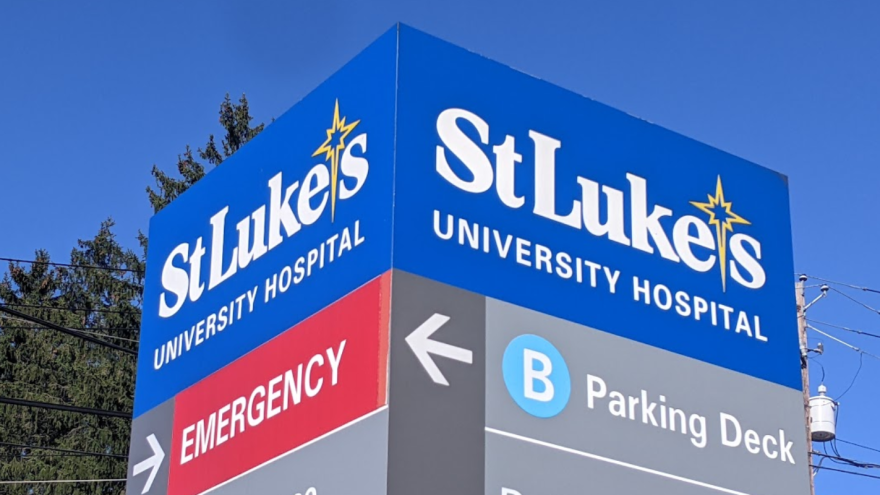
St. Luke's argued there is no legal precedent to force a hospital to break with its policy or force it to issue credentials or privileges to an outside physician.
That's true even given Ferraiolo stating he is willing to sign a release relieving the hospital system of liability as a result of the treatment, St. Luke's argued.
"St. Luke's Hospital and its physicians, pursuant to their duties to provide ethical, appropriate, and safe medical care, are unwilling to participate in the requested experimental regimen, as it is unproven and not standard of care," an Orphans' Court brief filed by St. Luke's in opposition to the complaint said.
St. Luke's: 'substantial harm'
St. Luke's attorney Mark Zolfaghari said it was the “first time I’m representing St. Luke’s to act below the standard of care,” contrasting it with patients claiming the hospital did not do enough to meet the standard level of care.
If the judge were to take the favor of St. Luke's, the brief goes so far as to say it would cause substantial harm to the medical profession.
It would compel physicians to act contrary to the standard of care, opening up future pathways of legal liability of others seeking to compel treatment and undermine the public's faith in the medical profession, the brief says.
St. Luke's even goes as far to say in the brief that its administration of the drugs could cause substantial harm to the public interest and would undermine the ability of its physicians to practice based on their medical judgment.
"The fact that a patient always has the legal right to refuse a particular treatment does not imply that the patient enjoys a corresponding right to extort a hospital into providing whatever purported treatment the patient desires," the brief states.
"A patient cannot simply appear at a hospital, demand a heart transplant or pain medication, and then seek judicial intervention to force the hospital's hand.
"The advocacy for ivermectin as a COVID-19 therapeutic or cancer treatment should be carried out by approved clinical trials, not by forcing hospitals to conduct experiments on their patients in violation of their professional, ethical and legal duties."
Zolfaghari said there is no precedent to compel a hospital to deliver a treatment or give certification to an outside doctor to let them practice within their walls at the urging of a patient.
'I do not think he will survive'
According to the brief, St. Luke's offered to transfer Ferraiolo to another institution willing to administer the regimen should his condition allow it.
Attorney Robert Rust, a member of Ferraiolo's legal team, said that was not an option presented to them.
It also argues that the regimen had not been submitted to the clinical trials and research department or institution review board, which the plaintiff's legal team said was not a step presented to the patient as required in order to get the treatment.
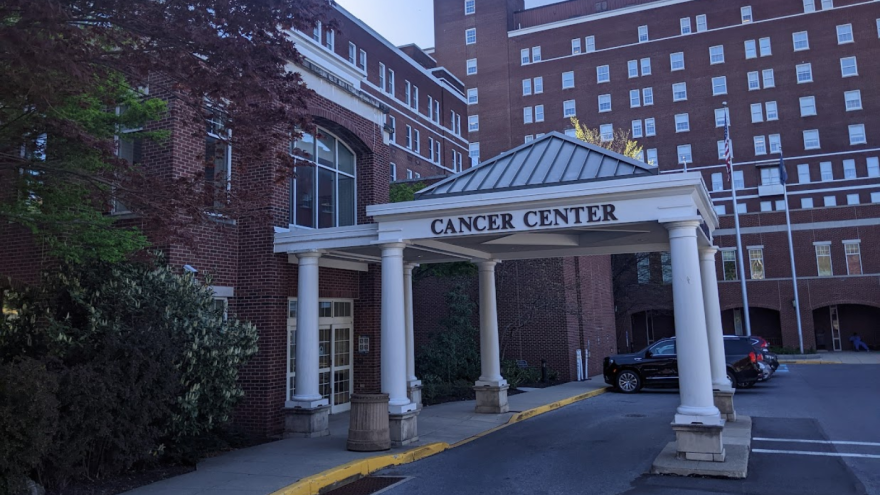
William Peters, a member of the IRB for St. Luke's, states in an affidavit that the cancer study has not been submitted to the IRB, whose approval would be needed for Ferraiolo to participate in it at the hospital.
Melissa Wilson, a medical oncologist for St. Luke’s, said during testimony that the medicines were not standard of care and she was aware of no peer-reviewed literature showing its efficacy.
Wilson also said the monograph cited by the plaintiffs references preclinic lab studies with cancer cells, not patients.
She also said she was not sure about the notion that the cocktail would not be harmful.
“I do not think he will survive his cancer,” Wilson said. “Metistatic disease is not curable.”
'Certainly has nothing to lose'
Dr. Pierre Kory and Dr. Paul Marik founded Front Line COVID-19 Critical Care Alliance in 2020. Both contributed to the plaintiff's case.
The group states that its goal is to research and develop lifesaving protocols for the prevention and treatment of COVID-19, largely through repurposed drugs and supplements.
It's embroiled in controversy over its insistence on the use of ivermectin over other treatments, such as remdesivir, an antiparasitic drug the National Institute of Health says is not recommended following clinical studies.
The government agency states that while ivermectin had been shown to inhibit the replication of the COVID-19 virus in cell cultures, studies suggest achieving the concentrations needed for the same antiviral efficacy would "require administration of doses up to 100-fold higher than those approved for use in humans," which experts have said has the potential to be fatal.
The group's beliefs and publications have been called "fringe" because of the dubious or lack of support for many of its claims, some of which has been called misinformation.
Kory previously claimed ivermectin is "effectively a miracle drug against COVID-19."
They argued that ivermectin was a low-cost alternative being suppressed by prevailing profit-oriented pharmaceutical interests.
Now, they are using that argument in support of the new cancer study, also centered on ivermectin, in partnership with breast cancer oncologist Dr. Kathleen Ruddy.
“Most oncologists deny this literature exists…because it threatens their source of income,” Marik said via Zoom as a witness for the plaintiff.
He said he believes it “will never be approved” by the NCCN because it goes against their narrative and revenue.
Outside of a non-peer-reviewed monograph, the defense noted Marik and Kory’s lack of oncology expertise and background.
Marik claimed during the court proceedings that “many thousands” have been treated with the program, but “under the radar.”
He says that Ferraiolo “certainly has nothing to lose.”
What's next in the case
Lorigo said Monday afternoon that what comes next lies with the clients' decisions, but he was frustrated by the decision.
"It amazes me that the hospital is so far above us all that they get to determine whether we live or die, they get to determine what happens and even a court is intimidated by that," he said.
He argued the medications were simple to administer and deserved a shot, but said "the only real solution unfortunately is going to be at the ballot box."
Lorigo said an amendment for the right to try act is needed, adding off-label drugs to its coverage.
Correction: This piece initially contained an incorrect spelling of the name of attorney Ralph Lorigo.

